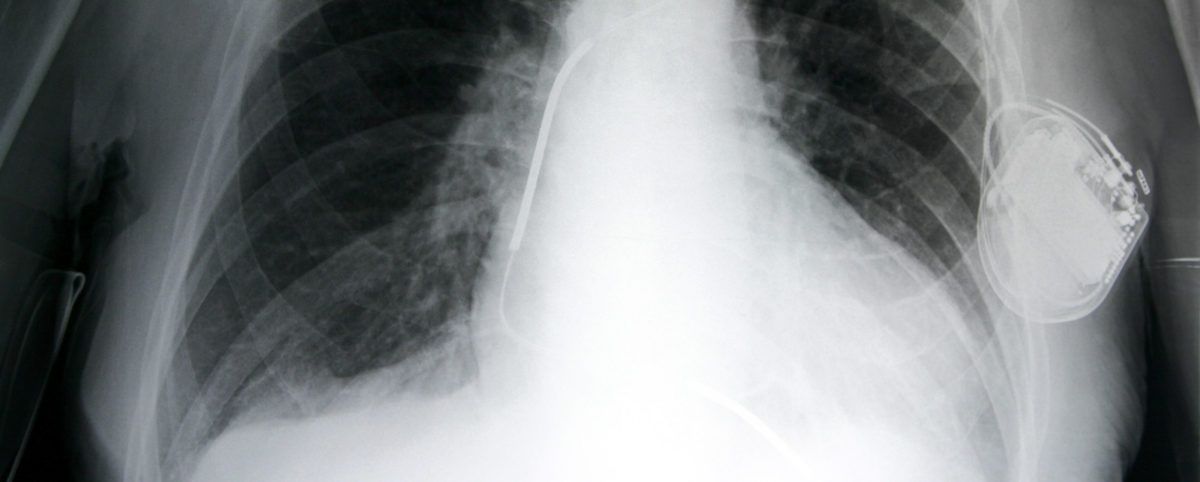Birmingham Health Partners plays key role in report calling for Government reform of regulation of medical devices
Experts within Birmingham Health Partners (BHP) have significantly contributed to a new independent report calling on the UK Government to reform the regulation of medical devices.
Lessons learned from issues around the regulation of diagnostic tests for COVID-19 which led to many substandard tests on the market, and opportunities for the UK to update the way it regulates medical devices now that it has left the EU, form part of the insights outlined in four reports by leading scientists from BHP.
BHP is a strategic alliance between the University of Birmingham, the West Midlands Academic Health Science Network, Birmingham Women’s & Children’s NHS Foundation Trust, and University Hospitals Birmingham NHS Foundation Trust, with members collaborating to bring healthcare innovations through to clinical application.
BHP’s Centre for Regulatory Science and Innovation was commissioned by the Regulatory Horizons Council (RHC), to produce four reports which have formed part of RHC’s ‘Report on Medical Devices Regulation’ calling for action from the government for regulatory reform of medical devices. RHC is an independent expert committee that identifies the implications of technological innovation, and provides government with impartial, expert advice on the regulatory reform required to support its rapid and safe introduction.
The BHP reports were based on a combination of literature reviews, semi-structured interviews, a multidisciplinary stakeholder workshop and a post-workshop survey. Stakeholders involved included leading experts from a range of policy and industry organisations such as the National Institute for Health and Care Excellence (NICE), Innovate UK, the Association of British HealthTech Industries (ABHI) and the British In Vitro Diagnostic Association (BIVDA), as well as patient and public contributors.
The reports produced by the BHP team focused on four critical areas defined through cross-stakeholder consultation undertaken by the RHC:
-
-
- Report 1 – details a study examining lessons learned from COVID-19 in relation to regulations of in vitro diagnostics (IVDs – medical devices intended for use in diagnosis of disease or other conditions), and sets out the regulatory challenges such as the development of substandard diagnostic COVID-19 tests and lack of availability of reliable information during the pandemic. The report also sets out a series of recommendations on how the government could increase efficiency in test development and distribution in the event of a future infectious disease outbreak.
- Report 2 – details a study consulting on the mitigations for the move to the United Kingdom Conformity Assessed mark from July 2023, as a result of the end to the use of the EU CE mark for medical devices. The cost and complexity of complying with the new UK regulation to medical device companies means companies may prioritise non-UK markets, potentially reducing availability and choice of medical devices for UK healthcare.
- Report 3 – details a study looking at alternative routes to market for medical devices, probing the UK’s unique opportunity post-Brexit to update the way it regulates medical devices to promote patient outcomes, stimulate innovation, and ensure that the UK remains at the forefront of the global life sciences sector.
- Report 4 – summarises ideas and evidence around the opportunities and risks for future UK regulatory reform of medical devices in four key areas: patient and public access to high quality medical devices; international investment and innovation; patient and user safety; and global standing in regulation of the life sciences sector.
-
Reports author Xiao Liu, a leading post-doctoral researcher at the University of Birmingham and an ophthalmologist at University Hospitals Birmingham NHS Foundation Trust, said: “With the UK’s exit from the EU, Europe’s transition of its regulatory framework, and the global urgency of the COVID-19 pandemic, now more than ever we need to identify how we can reform regulation so the UK can encourage international investment, innovation and improve safety of medical devices.”
Reports author Melanie Calvert, Professor of Outcomes Methodology and NIHR Senior Investigator at the University of Birmingham, and Director of the Birmingham Health Partners’ Centre for Regulatory Science and Innovation, added: “Among our findings is a clear need to build a patient-centred regulatory system that accelerates innovation, captures outcomes that matter to patients, protects patient safety and has increased patient engagement in medical device development and regulation. We are proud to have made such a significant contribution to RHC’s report and we hope it will lead to wide-ranging reform of the regulation of medical devices.”
In the foreword of RHC’s report, Sir Bruce Keogh, Chair of Birmingham Women’s and Children’s NHS Foundation Trust which is part of BHP, says: “This report from the Regulatory Horizons Council is a timely call for action. Importantly this report is firmly patient-centred: accelerating innovation, assuring safety, and increasing engagement of patients with the process of development and regulation. The opportunities are enticing. Effective implementation of the recommendations will bring tangible economic benefits and enable our patients to benefit from the very best of UK and global innovations more rapidly than at present.”
Recommendations within RHC’s report are centred on:
-
-
- Building a regulatory system for medical devices that works for patients
- Increasing capacity to address present needs and emerging opportunities
- International leadership and partnership in medical devices
- Using medical devices as a template to help enable regulatory innovation that improves patient safety, system efficiency and UK growth
- Building resilience and preparing for future threats
-
A spokesperson for the Regulatory Horizons Council (RHC) said: “We are very grateful to Birmingham Health Partners for the stakeholder engagement and four reports they produced, which provided a useful evidence base for our recommendations.”
ENDS
-
-
- Lessons learned from COVID-19 in relation to IVD regulations – https://birminghamhealthpartners.co.uk/wp-content/uploads/2021/08/Lessons-learned-from-COVID-19-in-relation-to-IVD-regulations.pdf
- Mitigations for the move to the UKCA mark from 01 July 2023 – https://birminghamhealthpartners.co.uk/wp-content/uploads/2021/08/Mitigations-for-the-move-to-the-UKCA-mark-from-01-July-2023.pdf
- Alternative routes to market for medical devices – https://birminghamhealthpartners.co.uk/wp-content/uploads/2021/08/Alternative-Routes-to-Market-for-Medical-Devices.pdf
- Opportunity and risks around future UK regulatory reform of medical devices – https://birminghamhealthpartners.co.uk/wp-content/uploads/2021/08/Opportunities-and-risks-around-future-UK-regulatory-reform-of-medical-devices.pdf
-
